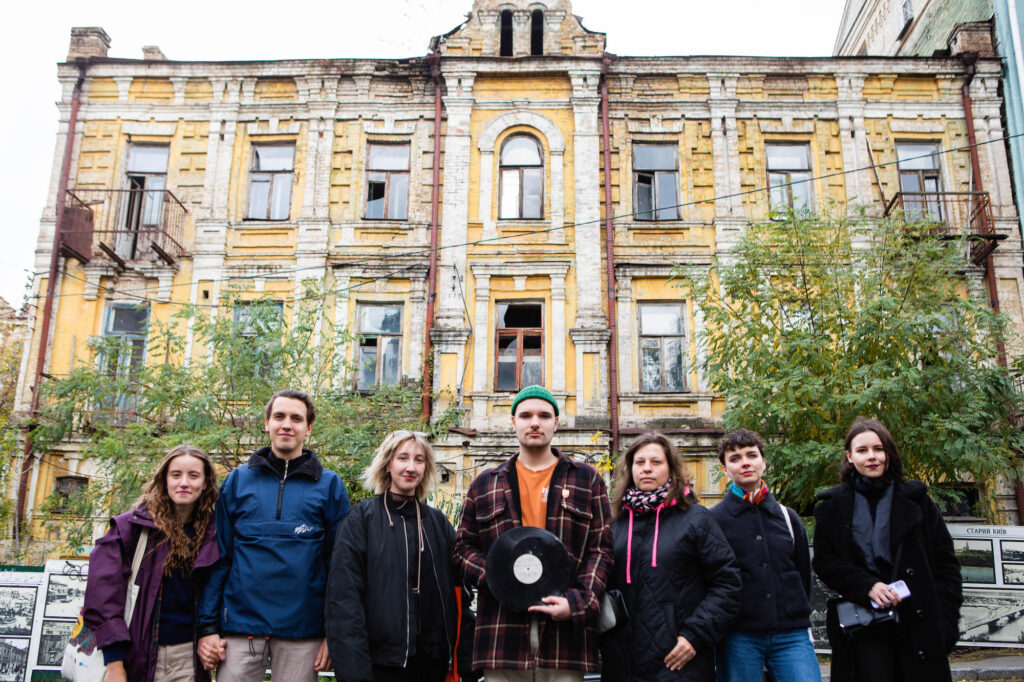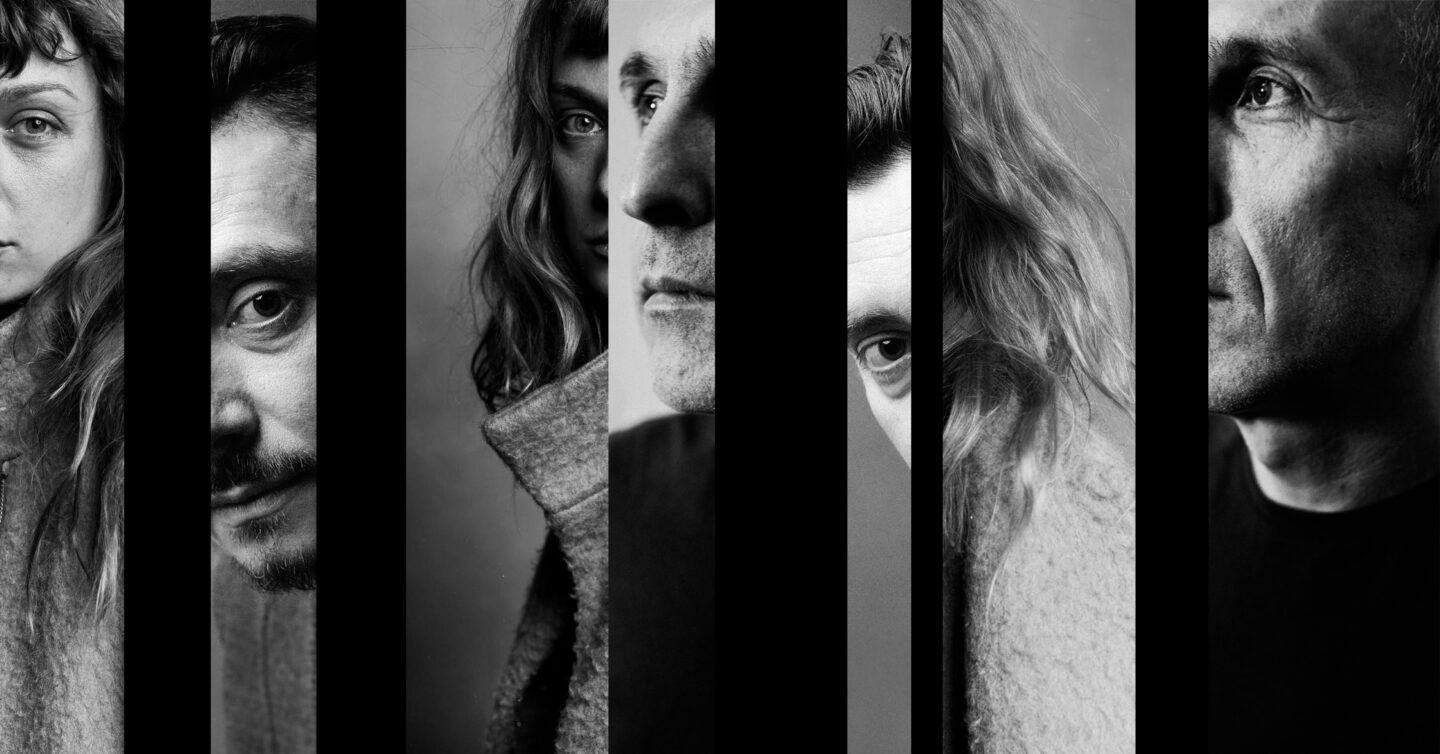We spoke with Uilleam Blacker, a Ukrainian and Eastern European culture researcher at University College London and one of the most prominent translators of Ukrainian literature into English, about the stories our literature can tell the world.
Blacker was born and raised in Scotland, where he began studying foreign languages at the University of Glasgow. Today, he lives in London, continues writing about Ukrainian literature for Western media and participates in literary festivals in Ukraine and abroad. Since the start of the full-scale invasion, he has often traveled to Ukraine.
Blacker emphasizes the similarities between the Ukrainian and Scottish experiences and is optimistic about the future of cultures that have often been neglected. Together with researcher Olesya Khromeychuk, Uilleam is a co-creator of the English-language podcast “The Ukraine Shelf,” which fills the knowledge gaps about Ukrainian culture and history. Enjoy our conversation about a translator’s work process, attentiveness to language, contemporary Scottish literature, British and Russian colonialism.
§§§
[This interview was made possible thanks to the support of The Ukrainians Media community — hundreds of people who believe in independent, high-quality journalism. Join to help us keep creating meaningful content.]
§§§
Uilleam, why did you decide to study literature?
Throughout my childhood, I read a lot and felt a connection with literature and art — my father is an artist. He taught art at my school. At first, I wanted to study at the Glasgow School of Art, but I didn’t get in. I ended up going to the University of Glasgow to study English literature and philosophy. In the end, I decided to study Scottish literature and philosophy. My university had a good Scottish literature department, where I studied for two years.
Weirdly, the University of Glasgow is the only university in the UK that offers a bachelor’s degree program in Scottish literature. No other university in Scotland has such a program, which surprises me greatly.
We’ll talk more about Scottish literature in a bit. Tell us, how did you come across literature written in Slavic languages?
Back at school, I’d read several Russian authors. At the time, I knew nothing about Russia and even less about Ukraine. One of those authors was Gogol — I simply stumbled upon his book in a bookshop.
Do you remember the name of the book?
It was “Petersburg Tales” and “Diary of a Madman.” Shortly afterwards, I read his Ukrainian short stories. It was a Penguin Classics edition, and I don’t remember if Gogol’s Ukrainian context was ever mentioned in it. Best case, there may have been a footnote.
So, while at university, I thought I’d try learning Russian.
In Scotland, university students have a wide choice of subjects. You choose one or two main subjects you study for the duration of your course, but otherwise, the system is very flexible.
I didn’t seriously study languages at school, I had French and Gaelic, but sadly I didn’t put much effort into my studies. However, at university it turned out that I liked languages and realized that I might have a talent for them. After two years of studies, I decided to make languages my main focus, chose Eastern European studies and went to Russia for a year.
Studying cultural history, I began to notice that the history of Russia and the USSR is complex and in some ways similar to British history.
England is at the centre of an empire, and there are other countries around it. They have quite tense and complicated relations with the center, and they speak different languages. I have noticed some similarities between Ukraine and Scotland in terms of their relations with the center of that empire.
I wanted to write my thesis on the literature of the Soviet Union countries, excluding Russia. I went looking for Ukrainian literature at the library, and it was very scarce — there may have been only one dedicated shelf. There were old Soviet Russian-language publications: translations from Ukrainian, Georgian, and Kazakh. I wrote my bachelor’s thesis on the Caucasus in Russian literature, a fairly obvious and popular topic for writers like Pushkin, Lermontov, Tolstoy and their imperialist discourse on the Caucasus. The literature on the Caucasus allows us to understand how brutal the Russian Empire was and how that was reflected in — and often supported by — literature.
As a student of Eastern European studies, did you study colonial theory separately? When did you become interested in colonial theory as part of cultural analysis?
My understanding of postcolonialism came through Ukrainian literature. Although I graduated in Slavic philology and learned the Russian and Polish languages… The program was interesting, but we didn’t really discuss this colonial dimension. It was the usual canon of Russian literature, the spotlight on “the white man.” During my master’s degree in London, I already knew that I wanted to write my master’s thesis on Ukrainian literature. The optics changed immediately — there was a lot of postcolonialism. I started reading Fanon, Homi Bhabha, and Spivak first through the works of Tamara Hundorova, Vitaly Chernetsky, and Marko Pavlyshyn. They were the three literary critics whose writings helped me understand Ukrainian literature.
When I talk to my colleagues, I realize that they often studied these theories as part of their comparative studies or similar disciplines. But I came to it through the Ukrainian context.
It should be natural for a Scot to be interested in Polish or Ukrainian literature.
If you look at the map of European literatures, there are big literatures that everybody knows, reads and respects at every university in the world and small ones that are not as well-known. Some may be in the middle — Irish, Czech, Polish literature. There is a hierarchy of literatures. There are literatures considered universal — supposedly always relevant to all of humanity. These are English literature, French literature and — very often — Russian literature, which is included in this hierarchy. But in my view, for such a large country, Russian literature is not that rich. This still has to do with empire, because literature does not exist in the abstract. It emerges due to various political and economic factors, and it requires resources: publishing houses, magazines, translators, money and state institutions. When you look at literature with this in mind, it is not surprising that the literatures of empires have become world-level — they get very strong support, and they are part of the so-called “soft power.” Some Scottish authors may be read in schools, but that’s largely because we were part of the empire — so some of our texts made it into the canon.
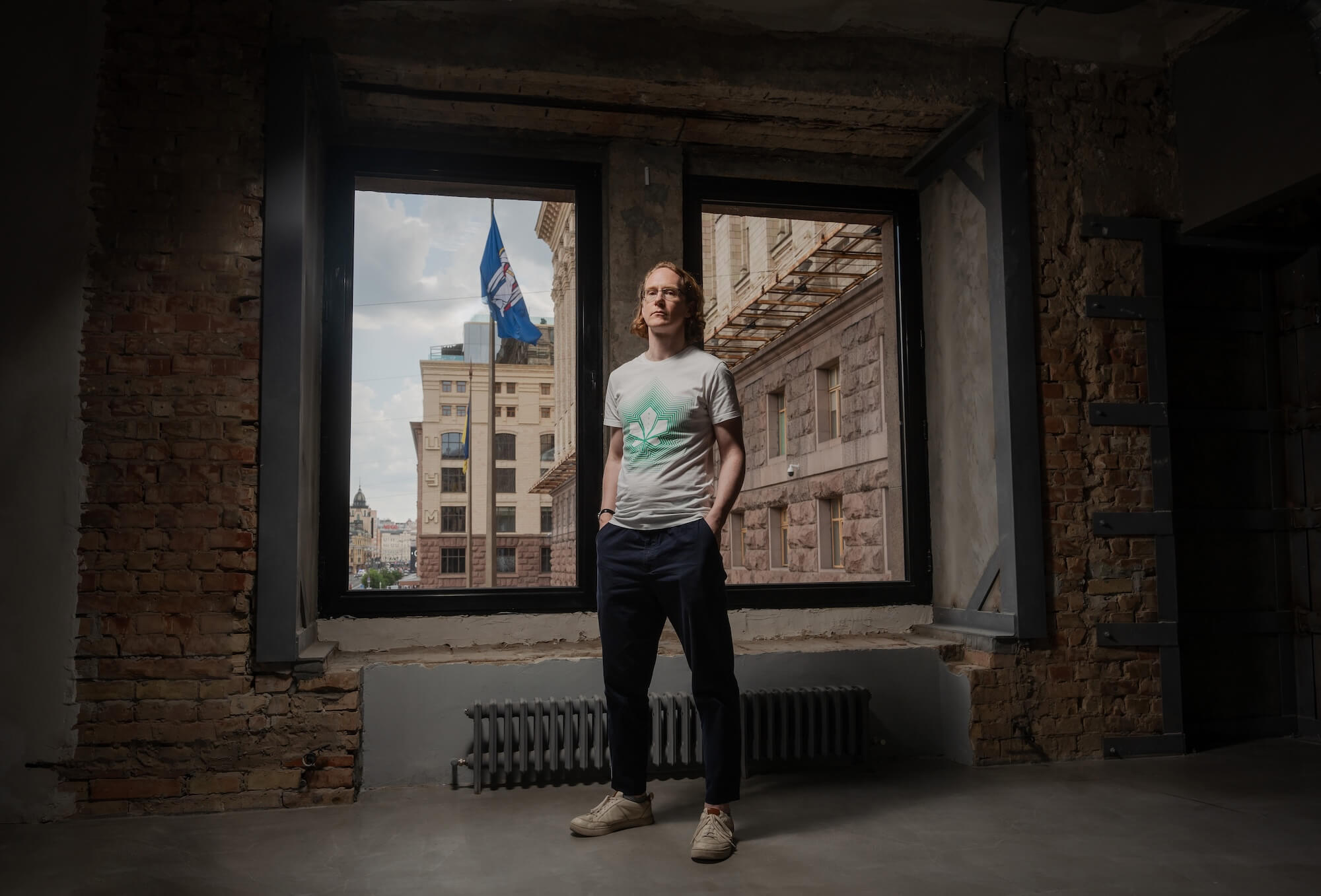
Nowadays, conversations about colonialism dominate the Ukrainian discourse. Do you think this narrows the perception of Ukrainian culture?
My role is not to instruct Ukrainians on how to think about their culture. However, it depends on how you perceive postcolonialism, for example. Marko Pavlyshyn wrote back in the ’90s that fighting against the empire is important, but we need to be moving forward. Pavlyshyn also wrote about the difference between anti-colonial and postcolonial discourses: a state of struggle versus a state of understanding your situation and realizing that colonial history existed and that you should work with it while accepting it as fact.
The way we write about Ukrainian culture, particularly literature, has changed because of the war. Ukraine is bilingual, a reality that stems from its brutal colonial history. Millions of Ukrainians speak and can write in Russian, and in a postcolonial situation, we need to understand this hybridity. Postcolonial criticism generally emphasizes hybridity and novel forms, an ironic attitude towards the metropole, and linguistic and cultural games that can be very creative. Some authors wrote about Russophone literature in Ukraine or the phenomenon of surzhyk [a mixed Ukrainian-Russian vernacular widely spoken in parts of Ukraine — Ed.], which is an interesting postcolonial phenomenon. Now, because of the war, we need to think about all these things again, since we see that defending a distinct tradition is also very important. This is a matter of state security. There is no simple answer to this. You can’t just erase the fact that Shevchenko, Gogol or Rafeyenko wrote in Russian.
We need to build positive Ukrainian stories from within, without looking for a compromise in the postcolonial reality where all consequences must be taken into account. You don’t have to live with the postcolonial consequences — you can change them. You can dismantle some monuments and build something new.
You mention Gogol and Rafeyenko. I also think of Schulz or Lem, dozens of important non-Ukrainian or not only Ukrainian-language authors from Ukraine… How do you think we should build a narrative about national literature today, taking into account these different authors?
For several years now, I have been interested in the question of Ukraine as a multilingual literary space. Is it possible to read all these authors who wrote in Yiddish, Polish, German and Russian — along with the Ukrainian-language authors — as a certain community, as a coherent literary landscape? Does this make sense? I think it does. But we shouldn’t look for homogeneity and simplicity in this. It’s not a puzzle made up of pieces that you put together to make a nice picture. These are very different puzzles that are mixed on the table. There could be connections between some of them, but some may not have any.
What connections do you look for? Is that a thematic unity or a stylistic one?
For me, it starts with the experience of being in Ukrainian cities. You walk down the streets of Lviv or Kyiv and see that a writer lived here — a Ukrainian, a Jewish, a Polish writer. They wrote about the same city streets at the same time, but in the context of different literatures, different national cultural projects, and they all lived in the same place. Sholem Aleichem and Lesya Ukrainka lived very close to each other in Kyiv for a period of time. I am very curious: would they have met? Did they know about each other?
There is a striking separateness. But this also depends on the reader. Roland Barthes famously wrote about the death of the author and the birth of the reader. Certain writers may not have known each other or read each other, but we can read them and try to understand their cultural space with all its conflicts, paradoxes, and curious and unexpected connections.
If we think about space and place as the starting point for understanding culture, we can enter the conversation from a new perspective. We don’t have to start with the national canon and national tradition, which are important and real.
But in this respect, as per usual, all the ways in which we put literature and culture into certain categories are to some extent artificial. Writers, of course, are a phenomenon of national culture, but not only. They can be a phenomenon of a certain place, city, theme or gender. I’m interested in the spatial, landscape and urban approach to understanding literature. But this approach is almost non-existent.
Why is this approach unpopular?
It all starts in childhood. We discover literature as something national — not as something rooted in the city we live in. Sometimes there is no difference, and sometimes it is huge.
At our university, we have a project called “A European Literary Map of London,” which brings together writers from different European countries who have written about London. Reading excerpts from such varied texts creates a completely different image of London. This is not only the London of Dickens or Virginia Woolf, but also, for example, Oleksandr Koshyts — he’s in this project, as he visited here with his choir and described his stay in London in a very witty way. It also includes Bulgarian, Serbian and Romanian writers. You look at your city as a cultural space from the dimensions you simply weren’t aware of before!

Speaking of the classics and canon, is it possible to integrate Ukrainian classics into the Western canon? Could quoting Lesya Ukrainka on campuses become mainstream?
The task of translators from the Ukrainian language is multi-level. As for quoting writers, it depends on where and by whom. My perspective is London-based. You might think that this perspective is very cosmopolitan and universal, but it’s not that simple. Our discourse can be quite narrow, and the same authors constantly appear in our literary imagination: Dickens, Shakespeare, Woolf and later Orwell. Here in London, there is limited awareness of authors who write in languages other than English. This is a problem of the English-speaking countries and cultures — they are somewhat closed off. Some world classics penetrate this bubble, but apart from Homer and Dostoevsky, there aren’t that many of them. This is a problem of translating into English, our problem. However, who is considered a classic changes — the canon is not a fixed entity, and we need to seek opportunities in that shifting.
One example is Bruno Schulz, whose English translation was published in a series edited by Philip Roth in the 1970s. This was the second publication of that translation, the first having been published in the 1950s by a university-based publisher. Thanks to the efforts of specific people and specific publishing houses, Schulz has reached a high level of readership and is now considered a classic, known and read not only by specialists in Polish literature. Stefan Zweig is another interesting example.
If you find a good publisher, a good translator and the right moment to present to an audience, you can introduce a new classic. Lesya Ukrainka could have been one of them. However, it’s more difficult because she wrote drama, and prose is easier to sell. But we still have to try. This means getting through to people who do not specialize in Eastern Europe — journalists who don’t usually write about this region, but who have decided to take a strong interest, like Charlotte Higgins from The Guardian — who are coming to this from the outside and talk to their audience about Ukraine. They do not present this topic as experts on Ukraine, but simply as cultural correspondents whom everyone knows and trusts. These are the methods we need to pursue. The classics series of large publishing houses such as Penguin and The New York Review of Books can be key. If something Ukrainian is published there, people who follow those series will read it as well. That way, it will reach a different, wider audience.
What stories does Ukraine tell about itself today through Ukrainian literature in translation?
There is still a demand for literature about the war, and contemporary writers do write about it. Oleksandr Mykhed’s book was published by a great publishing house — it is a good example and the result of consistent work with a skilfully written book, handled by a good literary agent who is interested in Ukrainian literature. Another case of an excellent book that reached a wide audience, but in very tragic circumstances, is Victoria Amelina’s “Looking at Women Looking at War.” It is heartbreaking that her success came only after she was killed by Russia. War is a universal theme, one of the great themes in world literature, present even in ancient texts. New Ukrainian war literature can also be a kind of brand, if we look at it cynically. It opens up paths to different kinds of readers. Some readers want to read non-fiction about the front and battles, but there are those who are interested in poetry. Ukrainian war poetry is a phenomenon in itself. I don’t know where else in the world people write as much as Ukrainian poets do about this war. I am constantly reading new texts by Halyna Kruk, Iya Kiva, Iryna Shuvalova, Yuliya Musakovska… I think something extremely strong is happening in Ukrainian poetry right now.
If we look at contemporary Ukrainian literature — for example, prose from the period since Ukraine gained independence to the present day — what names, texts and themes from our part of the world could be relatable to Western readers?
Where is Ukraine on the map in the minds of European readers…? They may not have a clear image of Ukraine, but readers do have some ideas about what Central and Eastern European literature is. It’s Milan Kundera, Czesław Miłosz, the theme of memory and history, the small person in the midst of big history, individual and collective memory, political memory. The Bulgarian author Georgi Gospodinov won the Booker Prize for his novel, which I think is very Eastern European in form and theme: memory, history, trauma, populism in politics, the memory of totalitarianism and nostalgia. Dubravka Ugresic and Danilo Kiš also belong on this list.
This is a certain tradition of this part of the world, whose boundaries are quite difficult to define. There are Ukrainian writers and novels that fit into it very well.
“The Museum of Abandoned Secrets” by Oksana Zabuzhko, “Forgotenness” by Tanja Maljartschuk, “Amadoka” by Sofia Andrukhovych. Readers in Europe understand this tradition, and Ukrainian authors can tell us a lot about these issues and the complex history of the 20th century.
You have taught several courses on Ukrainian literature at University College London. Was there anything your students found particularly fascinating?
Ukrainian feminist writers, especially Olha Kobylianska. We read “Valse mélancolique,” and each of them saw something of their own in it. Lesya Ukrainka, as well. There is a strong feminist tradition in Ukrainian literature. Last year, we read Marko Vovchok with students and had a very interesting discussion… All the way to Oksana Zabuzhko. I’ve already mentioned Maljartschuk and Andrukhovych, who, perhaps, do not strongly position themselves as feminists, but their texts can also be read from this viewpoint. And let’s keep in mind that people who read books are mostly women. This is true in the UK, and I think the situation in Ukraine is similar. Therefore, Ukrainian feminist literature written by women can also become something of a brand.
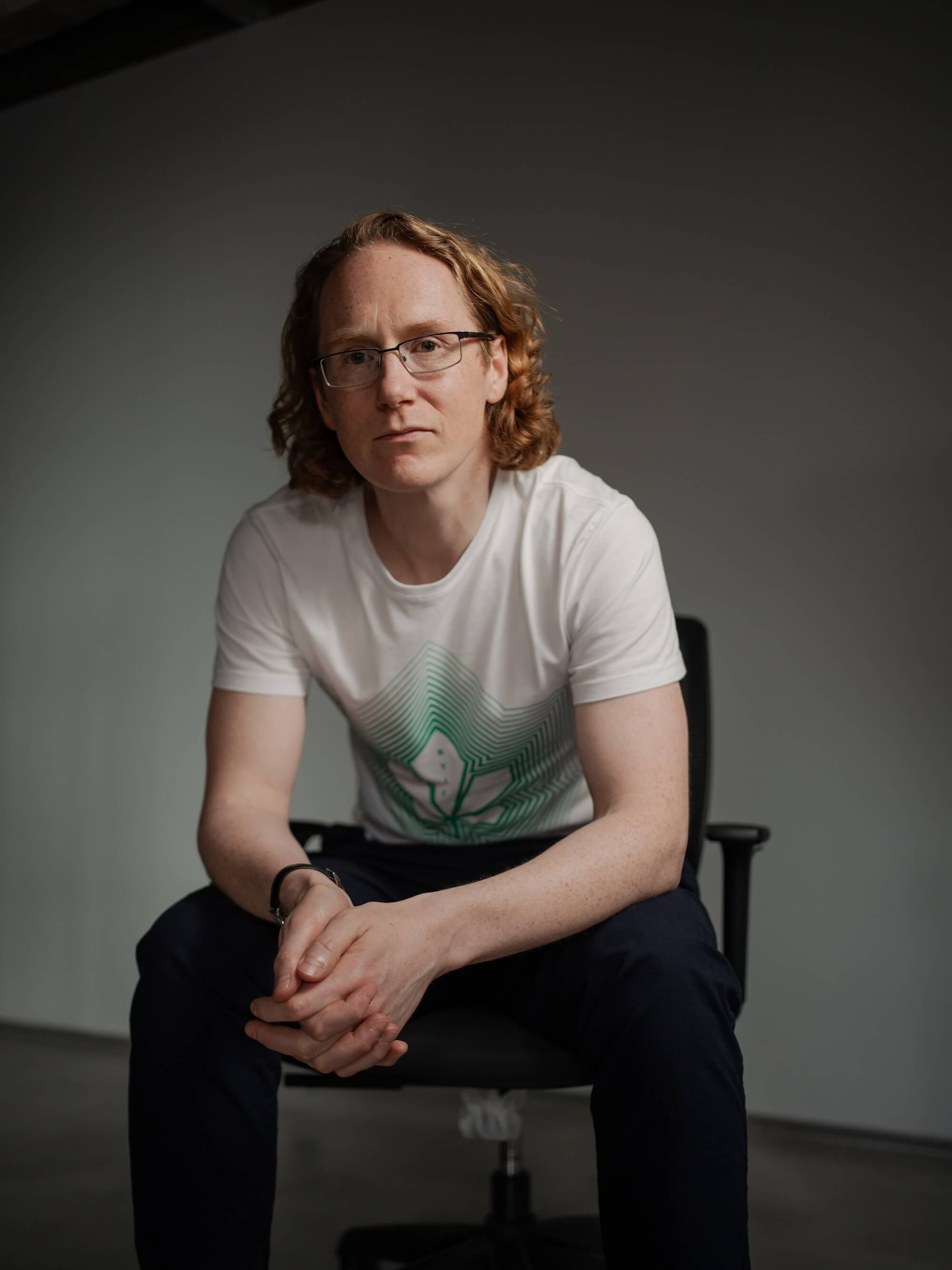
How much time did it take you to learn Ukrainian to a level where you could read and speak it?
That’s a tough question! I started with Russian and Polish at university and studied them in regular classes. As for Ukrainian, I learned it by myself by trying to read it.
After completing my bachelor’s degree in Glasgow, I lived in Kraków for two years, studied Ukrainian at the Jagiellonian University for a year and learned Ukrainian through Polish. I started in 2003 and have been learning it ever since. I started reading quite quickly — Polish and Russian helped me because they gave me an understanding of the vocabulary and grammar. I started with short texts by Yuri Andrukhovych and Taras Prokhasko. My first translation was “The UnSimple,” but I also read “FM Galicia,” which I really liked. In half an hour, I could read a short text with a dictionary — a page or two — but I felt the result immediately. I think about a year after I started learning Ukrainian, I could already read. But I’m still learning, and I come across words I don’t understand — so that keeps me interested.
What are the most important professional practices for a translator?
It is important for a translator to read in their mother tongue. We always put the emphasis on the foreign language from which we translate, and so sometimes you can forget that you need to know your own language very well. I constantly read in languages other than English — Ukrainian, Polish, or I read translated literature. So sometimes I lack fresh experience with my language. I try to read something relevant in English to get a feel for my language.
For a good translation, it helps a lot to read similar texts from a certain era or style — but you could also read writers who have a similar vibe to what you are translating.
Are there any authors or texts that you return to when you feel the need to dive deeper into the English language?
I can’t say that there are specific texts. I just look for something new. Not long ago, I realized that I’d never read anything from the Harlem Renaissance, so I picked up a book by Langston Hughes. It was fascinating to experience the specific African American vernacular he wrote in. I provided myself with an experience of my language that I hadn’t had before.
I refreshed my sense of what English is because it is actually very varied. To return to the topic of postcolonialism, it doesn’t belong only to the English.
I am often more interested in reading how American, Indian, African, Irish or Scottish authors write in English. In Scottish literature, the English language is very complex and interesting, different.
Harvard University Press is about to publish your translation of Maik Yohansen’s novel. Are there any English-language authors you’ve read to better capture Yohansen’s language in English?
I felt I needed to read something playful with an ironic tone, where the author plays games with the reader. At some point, I started reading Laurence Sterne. He’s not avant-garde, he’s an 18th-century author. I don’t know if Yohansen was ever inspired by Sterne, but they have a similar way of writing — the long title, the journey, the literary games, playing with the reader, the idea of the author’s role. Sterne has it all, and he was very influential on avant-garde writers.
I also read Scottish poets from Yohansen’s time, or at least close to it — Sorley MacLean, who wrote in English and Gaelic, or Hugh MacDiarmid, who wrote in Scots. He was basically our Khvylovyi. Scottish writers of that time, like all avant-garde writers, were interested in extreme political ideas and in the 1920s, looked at the Soviet Union with great attention. These texts combined the national renaissance with left-wing views, building a new world for a new man, incorporating Scottish literature and the Scots or Gaelic language into a European context — something that was hard to imagine before. And there were similar moments with Ukrainian writers who wrote in the 1920s, who were often also leftists but not Bolsheviks. They wanted to free themselves from the cultural inferiority complex, to build a new national culture in the European context, to modernize, to embody the ideas of the new world and to do so through a marginalized language.
We started with Scotland and have now circled back to it. Please, recommend some contemporary authors that Ukrainians should read.
I love Muriel Spark and recommend her works. You can start with “The Prime of Miss Jean Brodie” — there is a fairly well-known film adaptation of it starring Maggie Smith. Spark is witty and ironic, able to describe the bad sides of human nature well and reveal very unpleasant features that exist in everyone.
I love Alasdair Gray, whose name is now widely known thanks to the film “Poor Things.” By the way, I used to work in a pub in Glasgow where Gray would go for a drink, so we’ve met. The novel that became the basis for the film is very cool and different from the film. The director excluded a big chunk at the end of the book, which makes the feminist message much more clear. It was also a shame that the location of the film was moved from Glasgow to London. The novel describes Glasgow very beautifully — you can walk around specific places through this text, and I know all these places very well.
Perhaps my favorite Scottish novel is the early 19th-century text “The Private Memoirs and Confessions of a Justified Sinner” by James Hogg. It is a satirical psychological novel. We observe the protagonist’s mental disorder and split personality by reading his diaries and letters. It reads like a postmodern text from the 1990s.
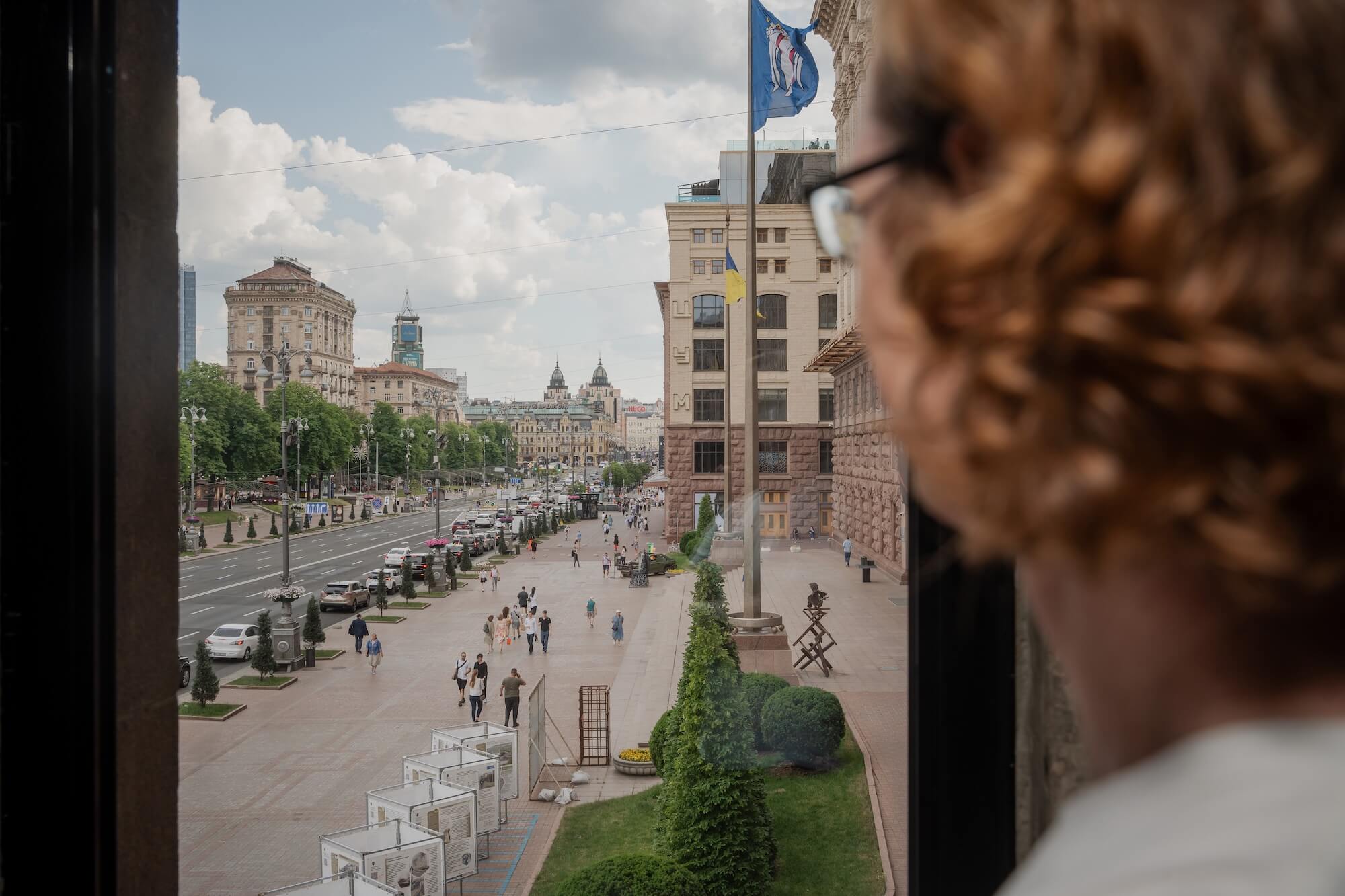
In your view, what are the main trends in contemporary Scottish literature?
I grew up on the literature of the 1980s and 1990s, which always had a strong social component. There is also the issue of language. The language appears to be English, but the author represents the way people speak it in Glasgow or Edinburgh, and their text, when it becomes literature, will demonstrate that it is not just some inferior slang or a dialect. There are authors who write in a dialect — a well-known case of this is James Kelman, who won the Booker Prize in 1994 for his book “How Late It Was, How Late.” He writes in a specific Glasgow dialect and does not use punctuation. Many London critics were outraged by this! How could anyone write like that? How could anyone understand it? He is an existentialist author, influenced by Camus, writing philosophically rich novels about the meaning of existence, but they are written in a seemingly non-literary language. How could literature be created by poor people from Glasgow? But, as it turned out, it can be. One jury member even walked out of the room to protest Kelman’s victory.
I grew up with the understanding that simply writing from your perspective, a marginalized perspective, in a marginalized language — is a political move, and this aligns with the Ukrainian experience.
There is an interesting quote about cities in Alasdair Gray’s novel “Lanark.” One character says to another, “If a city hasn’t been used by an artist, not even the inhabitants live there imaginatively.” Literature and art are necessary for us to live in our cities not only physically but also in our imaginations. That’s why Gray wrote about Glasgow, not London. He wanted to show that all cities have the potential to be in literature; we can find beauty and ideas anywhere. But we need to describe them. We need artistic reimagining to do that.
I recall the beginning of the full-scale war, when everyone involved in Ukrainian literature was writing out lists of Ukrainian books that were worth reading. Has comparative literature, texts that allow us to view Ukrainian literature in the context of foreign literature, emerged since then?
The situation has changed, simply by the fact that more translations from Ukrainian are now available in bookshops. There are many books about Ukraine written by foreign journalists. Steps have been taken, but we need to work not only in the moment, but also build long-term relationships with various institutions and publishers. It is necessary to maintain interest in the books that are being published in translation now, so that there is an audience awaiting the next ones. The state should play a role here as well. The Book Institute has a translation program, which is excellent and very important. I think this program could be made a little better. Unfortunately, there are certain bureaucratic issues in Ukraine that force a translation to be published within a very short timeframe.
Without new translations, there will be nothing. In Britain, publishers often wait for grant support because a new book is always a risk. It is almost impossible to make money from translated literature. Grants are important because they make it worthwhile for a publisher to discover new names. Then these books can be nominated for awards for translated literature, which makes more readers and publishers aware of those books.
It’s a rather boring answer to the question, but all these institutional, pragmatic things really matter. We need people who work behind the scenes, who are professionals, who know languages and markets, and who understand how to work with the local industry and audience.
Translated from the Ukrainian by Liubov Kukharenko

